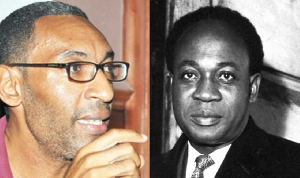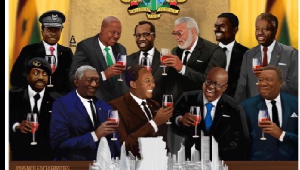It is critical to hint at this stage that as Ghana prepares for another round of presidential and parliamentary elections, the nation’s political climate is once again coming into focus.
Over the years, Ghana’s democracy has matured, allowing for peaceful transitions of power and an increasingly engaged electorate.
However, despite these achievements, certain negative aspects of the political landscape persist, particularly insult-based politics and political expediency in addressing major national challenges such as illegal mining (galamsey).
The time has come for all political parties to embrace a politics of integrity, eschew insults, and place the national interest above personal or party gains. I believe this is a moral imperative and a critical step toward achieving long-term peace, development, and justice in Ghana.
Insult-Based Politics
Political discourse in Ghana, at times, has been marred by insults and personal attacks. Such rhetoric, often designed to score cheap political points, ultimately damages the nation's democratic fabric. Politics should be a contest of ideas, not a platform for trading insults. When politicians resort to name-calling, it detracts from the real issues facing Ghanaians, such as unemployment, education, healthcare, and economic growth.
Moreover, insult-based politics breeds division among citizens, fostering animosity and, in some cases, violence. It is important that, as Ghanaians, we remember that the political process is designed to serve the people, not to alienate or divide them. Leaders who focus on personal attacks rather than constructive debate set a poor example for future generations.
Instead of insults, political parties should engage in healthy dialogue, presenting well-thought-out policies that address the nation's pressing needs. This approach will promote national unity and deepen the electorate's trust in the political system.
Galamsey Fight
One of the most pressing challenges Ghana faces today is the illegal mining menace, commonly known as galamsey. The destruction caused by galamsey to Ghana’s environment, particularly water bodies, forests, and farmlands, is alarming.
Despite several campaigns and promises by successive governments to tackle the issue, galamsey continues to thrive due to political expediency and short-term gains on the part of some politicians.
Political parties must resist the temptation to turn a blind eye to galamsey in exchange for political support or financial backing. The fight against illegal mining should not be contingent on political alliances or the quest for votes. Instead, leaders must take a firm stand, regardless of the electoral consequences, to protect Ghana’s natural resources. The long-term sustainability of the nation's environment and the well-being of future generations must be prioritised over political expediency.
Leaders who place the fight against galamsey at the forefront of their campaigns and policy initiatives will be demonstrating their commitment to national development and setting an example of principled leadership. I can state without equivocation that by doing so, they will reassure the electorate that their focus is on the greater good of Ghana, not just on winning elections.
Accountability
It is worth mentioning that at the heart of this discussion is a simple yet profound truth: nothing is hidden from God. The onus lies on us all as good citizens to change the status quo.
Besides, as political leaders and citizens, we must remember that our actions, both in public and in private, are ultimately subject to divine scrutiny. This awareness should compel us to act with integrity, fairness, and selflessness in all our dealings.
Political parties must recognise that they have been entrusted with the sacred responsibility of leading and serving the people. This trust should not be betrayed by corruption, deceit, or the pursuit of power at any cost.
Ethical governance
Instead, political parties and their candidates should embody the principles of accountability, transparency, and ethical governance. When leaders act with these values in mind, they earn the respect and trust of the electorate, paving the way for a more just and prosperous society.
Ghanaians are not merely voters; they are stakeholders in the nation’s future. Political leaders must, therefore, put Ghana first in all their decisions and actions. The country’s progress and well-being must supersede party politics, personal ambitions, and external pressures. Leaders who demonstrate their commitment to Ghana’s long-term development will leave a legacy that future generations will honour and celebrate.
Elections
It is critical to indicate that as Ghana approaches another critical election, political parties have an opportunity to redefine the nature of political discourse.
By eschewing insults, avoiding political expediency, and putting the country first, they can elevate the political process and inspire confidence in the electorate. In doing so, they not only serve the interests of Ghana but also honour their accountability to God and the people.
The future of Ghana is too important to be sacrificed on the altar of short-term political gains. Let us all, political parties and citizens alike, commit to a politics of integrity, unity, and development—because Ghana deserves nothing less.
Opinions of Monday, 14 October 2024
Columnist: Amanda Atunah















